10 women leading the way in tech

March is Women’s History Month and here at HopSkipDrive, we’re taking a little time to celebrate women who are leading the way and making a positive impact in the world by employing technology to solve problems.
While there’s no shortage of women who deserve recognition for the cutting-edge work they’re doing, we’re spotlighting 10 female founders and entrepreneurs who are breaking down barriers in the male-dominated tech industry and spurring their companies to great heights.
1. Stephanie Lampkin, Founder and CEO of Blendoor
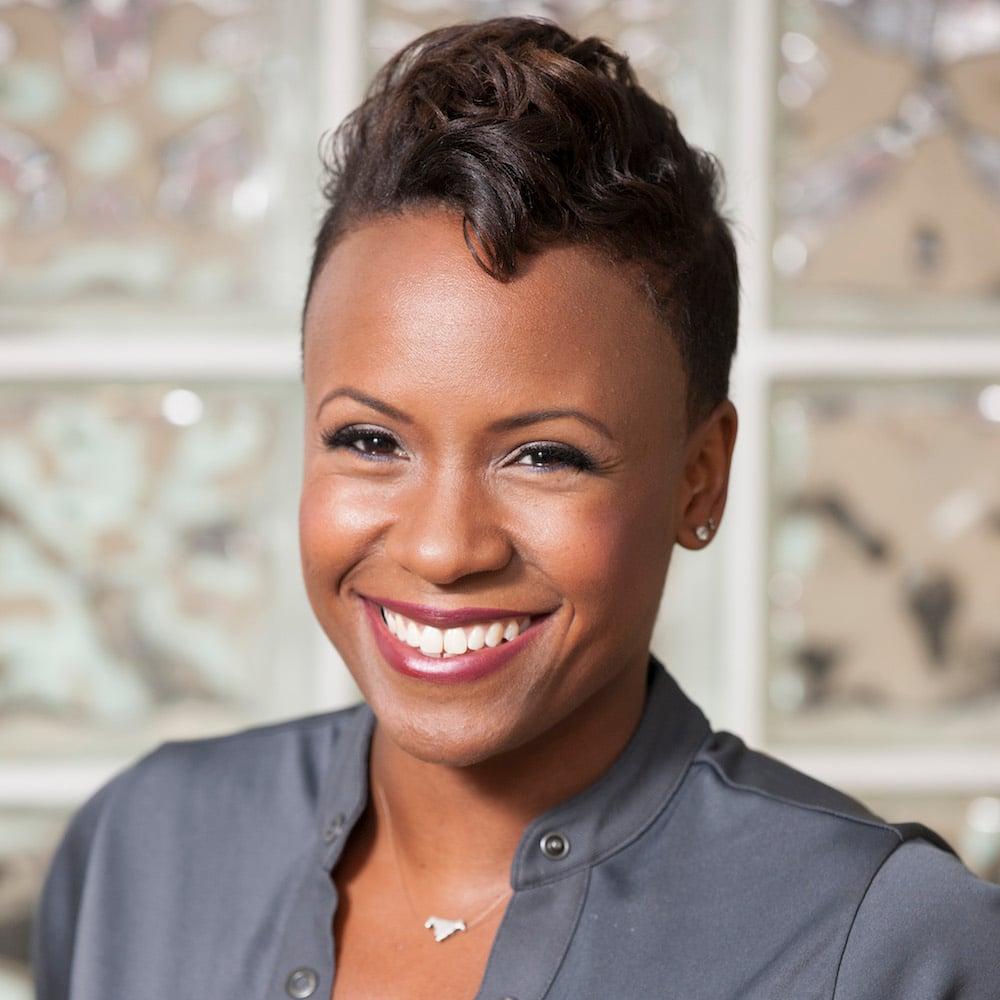
Stephanie Lampkin founded Blendoor, a data-driven analytics tool that helps remove unconscious bias from the hiring process, in 2015. Since its founding, Blendoor has grown into a robust software hiring solution that helps companies recognize their hiring flaws and build a more equitable workplace by recruiting talent through an anonymized database.
Lampkin, who has personally dealt with bias throughout her career, holds an MBA from MIT and has built and managed software at businesses such as Deloitte and Microsoft.
When talking about unconscious bias, Lampkin says: “No one is more incentivized to solve this problem than me — a 4’11” gay black woman. . . . But I’m a technologist. I see a gap and see a problem much the same way a lot of major inventors and innovators have, and I am leveraging the resources and knowledge I have.”
2. Melanie Perkins, CEO and Co-founder of Canva
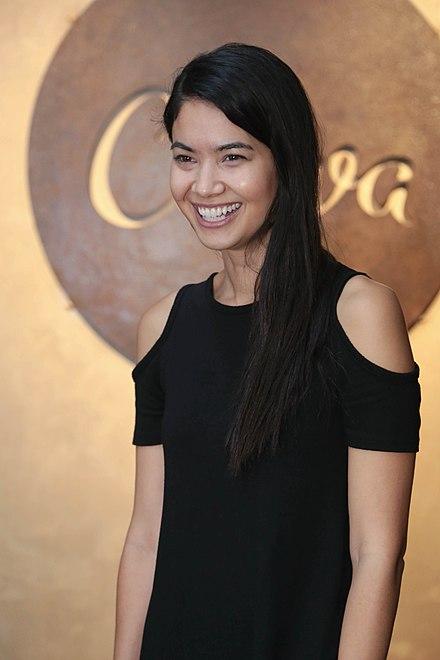
Melanie Perkins discovered her passion for entrepreneurship when she began making and selling scarves as a teenager. As a college student, she became fed up with design platforms sold by Microsoft and Adobe, which she believed were too difficult for most people to use.
“People would have to spend an entire semester learning where the buttons were, and that seemed completely ridiculous,” she says. “I thought that in the future it was all going to be online and collaborative and much, much simpler than these really hard tools.” This type of thinking led her and her co-founder to build a collaborative yearbook-design software that scaled into the intuitive, beloved design platform Canva is today.
Based in Australia and launched in 2013, the company is now the world’s most valuable startup to be founded and led by a woman: Canva was valued by private investors at $40 billion in September of 2021.
Through her work, Perkins is making a sizable impact in more ways than one. She and her husband and co-founder, Cliff Obrecht, have promised to donate more than 80% of their stake in the company to support charitable causes through the Canva Foundation.
3. Safra Catz, CEO of Oracle
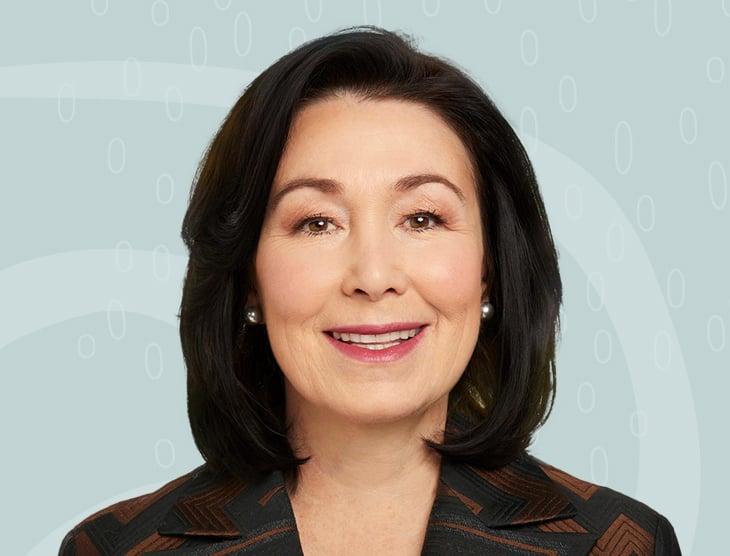
A pivotal figure in the computer world, Safra Catz has overseen more than 100 company acquisitions since joining Oracle — the third-largest software company in the world — in 1999. As CEO, a role she stepped into in 2014, she has reshaped the company’s approach to customer success while carefully using research and development and acquisition budgets to fill gaps in Oracle’s service offerings.
Says Catz: “I know firsthand the complexities of leading an enterprise through business and technology transformation. It takes intense focus, a strong drive, and a clearly communicated vision to inspire and take an organization from where they are, to where they need to be — or where they want to go.”
An Israeli immigrant, Catz has a law degree from the University of Pennsylvania and spent 14 years working on Wall Street covering the software industry. She is frequently found at the top of lists of self-made businesswomen around the world.
4. Anne Wojcicki, Co-founder and CEO of 23andMe
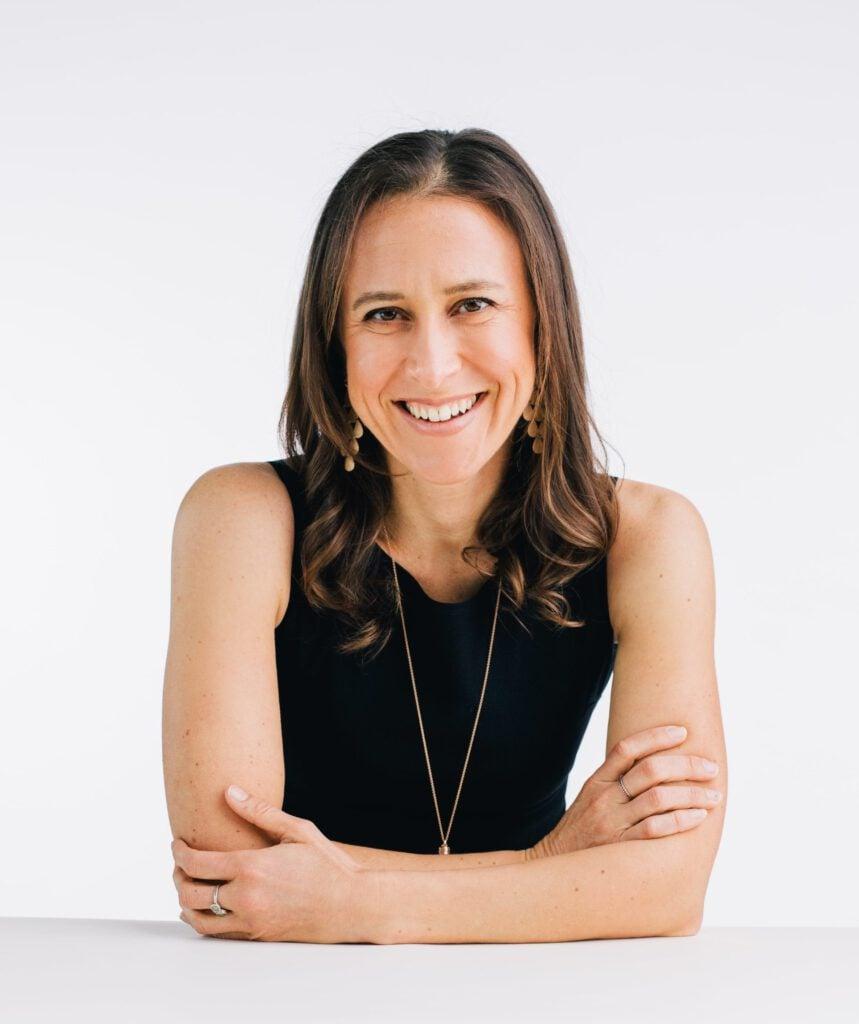
Anne Wojcicki is a leading figure in the healthcare and genomics fields. She co-founded 23andMe — a human genome research company that provides rapid genetic testing via DNA tests that are shipped to customers’ front doors — in 2006 after spending a decade focused on healthcare investing for biotechnology companies.
“The guiding principle for 23andMe is transparency and choice,” Wojcicki says. “It’s the choice whether you want to get your genetic information, the choice if you want to participate in research, the choice that you don’t want to do all these things. And I think that’s one of the issues I have in healthcare — most times you’re not provided choice and you’re not provided transparency.”
To date, 23andMe has built one of the world’s largest databases of individual genetic information. The company’s personal genome test kit was named Invention of the Year by Time magazine, and Wojcicki herself has been named “The Most Daring CEO” by Fast Company.
5. Payal Kadakia, CEO and Co-founder of ClassPass

Payal Kadakia launched ClassPass, a fitness class aggregator, in 2013. The idea came to her after she struggled to find a dance class in New York City. She realized there was no consolidated information anywhere, making it impossible to browse options all at once.
“ClassPass came to me because I wanted to solve a problem in the world,” says Kadakia. “What drives my ambition is that I constantly want to make the world better — through feelings, art, movement — all the various products I can build for it.”
Today, ClassPass is a monthly subscription service providing access to the world’s largest network of boutique fitness studios and gyms. ClassPass earned the much-sought-after classification of “unicorn” in 2020 with its $285 million Series E, which pushed its valuation to more than a billion dollars.
Kadakia holds a B.S. in management science from MIT, and formerly worked as an analyst at Bain & Company. She is also the founder of The Sa Dance Company, a platform focused on facilitating expression of the Indian American identity through movement.
6. Georgina Gooley, Co-founder of Billie

The idea to start a female-first shaving and body brand was born when Georgina Gooley realized that women’s razors were more expensive than men’s. Countering the so-called “pink tax” — inflation in the price of retail goods marketed to women — in the traditionally male-dominated shaving category was a driving factor for Gooley and her co-founder, who launched Billie in 2017.
With an extensive background in advertising, Gooley also wanted to change how shaving companies and their advertising agencies marketed shaving products — and how they depicted the women who used them. With its progressive advertising campaigns, Billie strives to normalize body and facial hair for women and support body positivity.
“My time in advertising definitely plays a big role in that urge to upend societal norms,” she explains. “I knew that if I was going to create a brand from scratch, it had to have a really strong point of view and be mission-driven at its core. Building the Billie brand was about being transgressive in some way.”
The Billie brand was named as WWD’s Newcomer of the Year in 2018, and was included on Ad Age’s list of America’s Hottest Brands the following year. Gooley has been included on Ad Age’s 40 Under 40 list, and was named one of the Top 100 Women in the World in 2022 by The Global Connections for Women Foundation (GC4W).
7. Heidi Zak, Co-founder and CEO of ThirdLove

Heidi Zak took the experience she had struggling with a bra while getting dressed for a holiday party and turned it into an idea that disrupted the lingerie industry. In 2013, she co-founded ThirdLove, a San Francisco-based direct-to-consumer startup that is using technology to change how women shop for and purchase intimates.
With its innovative Fit Finder® system that enables a woman to find her bra size from home, ThirdLove champions inclusivity by producing bras in 78 different sizes. “Being the company that’s driving change is actually really hard,” says Zak, “so I have a ton of respect for tech companies that manage to keep ahead of the curve. We all know that's the hardest thing to do.”
Zak has an undergraduate degree from Duke University and an MBA from MIT Sloan. Previously named to Fortune’s 40 Under 40, EY Entrepreneur of the Year, National Retail Federation’s Disruptors, Fast Company’s Most Creative People and Goldman Sachs’ 100 Most Intriguing Entrepreneurs lists, she is dedicated to the advancement of women in tech, and is an active angel investor in numerous female-founded companies.
Since its inception, ThirdLove has donated over $50 million of products to women in need.
8. Joanna McFarland, CEO of HopSkipDrive

It’s an all-too-familiar scenario: Three working moms struggling to get their busy kids to and from school and activities. McFarland and her two co-founders took their lead from this common pain point, launching HopSkipDrive — a technology-based safe youth transportation solution — in 2014.
Says McFarland: “We designed our product around one question: What would it take for us to put our kids in a car with someone? We instituted a heavy vetting process and required five years of caretaking experience, and we established a Safe Ride Support team and a tech platform that tracks everything.”
Since its founding, the company has grown to serve 21 markets in 12 states, working with over 400 school districts and county child welfare agencies. Through its innovative app and platform, HopSkipDrive has enabled transportation for more than 2 million kids to over 16,000 schools.
Before HopSkipDrive, McFarland spent 15 years in product management, building and scaling businesses for top technology brands, including WeddingChannel, Green Dot and YP.com. Prior to that, she spent time in investment banking and private equity. She has an MBA from Stanford University, and a BS from the Wharton School at the University of Pennsylvania.
A 2022 EY Entrepreneur of the Year Los Angeles finalist, McFarland was named an Inc 100 Female Founder and one of Comparably’s Best CEOs in 2021. The company was awarded dotLA’s Startup of the Year award in 2021.
9. Mariam Naficy, Founder and Executive Chairman of Minted
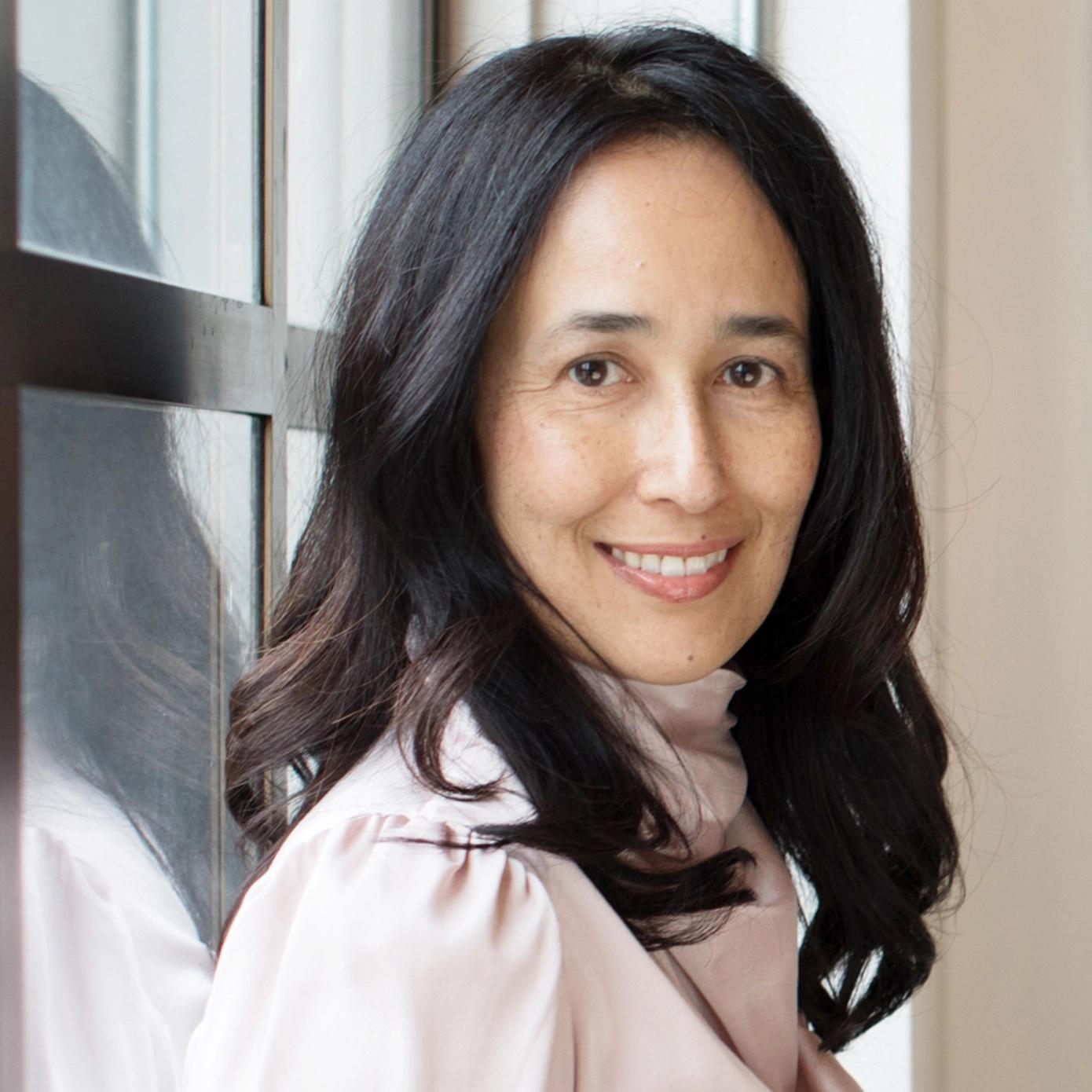
A serial entrepreneur, Mariam Naficy has been spearheading e-commerce companies since 1998. After noticing how people were collaborating online to create content, she launched Minted — an online marketplace of goods created by independent designers and artists — in 2007. Minted has since become one of the world’s most extensive crowdsourcing platforms, just as Naficy intended.
“Through our crowdsourcing model and unique customization offerings, our data helped us uncover consumer needs and desires that were not currently being met in the traditional marketplace,” says Naficy. “I really love the artists and the designers and I really wanted to bring their work to the world.”
Since Minted is built around real artists and their latest ideas, the business’s offerings constantly adapt as trends change and tastes evolve. The company has grown into the world’s leading design marketplace, with its products in more than 75 million homes worldwide.
A former analyst at Goldman Sachs and a member of the Stanford Graduate School of Business Advisory Council, Naficy sits on the board of Every Mother Counts, Medium and Victoria’s Secret.
10. Michelle Kennedy, Co-founder and CEO of Peanut

Michelle Kennedy understands the power of online communities. The former deputy CEO of Badoo and an original board member of Bumble, she identified a void in the realm of social networks for mothers when she had her first child. Based on that need, she launched the London-based startup and app Peanut in 2017. Peanut aims to decrease feelings of isolation and enable women to authentically connect with one another from all over the world, at every stage of life.
“I was dogged in my determination,” says Kennedy. “I really believe if there is a pain point, if you understand that pain point, if you have context and data to support your assumptions, you should pursue your solutions — so I did.”
As of July 2022, Peanut had more than three million users in the U.S., the UK, Canada and Australia. Peanut was named one of the Best Apps of 2021 by Apple, and one of the Most Influential Companies of 2022 by TIME.